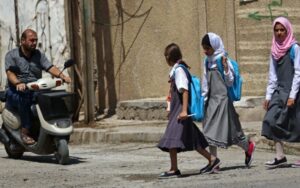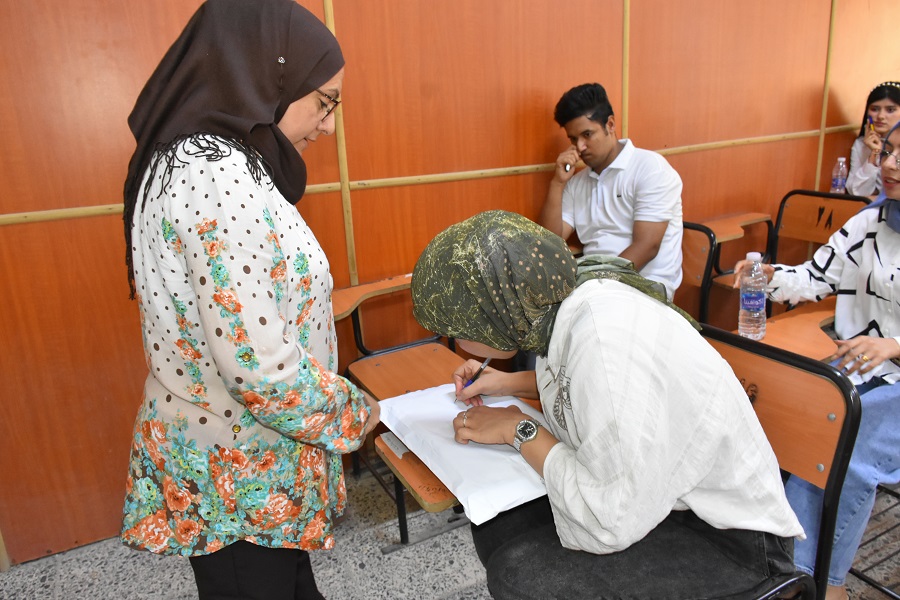The New York Times report from 2004 covered a conversation between college students in Iraq and the United States. Seemingly the Iraqi and American students had similar “dress, hairstyles and polite manner.” Both groups spoke in English to one another about their lives. However, one notable difference between the Iraqi and American college students was the experience of women in education.

As a female college student in the United States, I have opportunities equal to my male peers. I’m free to attend classes, express my opinions, and wear what I choose. Title IX protects me from discrimination. When I walk around my college campus, I feel safe. Similar to the American students in the New York Times article, I feel that I have a place on my college campus. My professors, parents, and peers push me to receive a good education.

After further researching the education of Iraqi women in college, their experiences could not be more different from my own. During the conversation with American students, an Iraqi woman stated, “I cannot go to college safely. I cannot go out. I’m a girl. I’m afraid to be kidnapped.” Though this interview took place nearly 20 years ago, continued oppression of women in education continued throughout Iraq’s history.
In 2014 the terrorist organization, ISIS shut down the University of Mosul in Iraq. Students, professors, and staff fled to Kurdistan. ISIS also targeted students and professors who studied in the United States. Classes about democracy were shut down and students were forced to undergo military training. Additionally, ISIS further discriminated against female students, forcing them to cover their faces and take classes separate from men.
The presence of ISIS in Iraqi Universities had even greater impacts on women, hindering the education of hundreds of thousands of students in Iraq. Many students lacked the documents and academic knowledge to reenroll in school. In an interview conducted by the Human Rights Office of the UN Assistance Mission for Iraq in 2019, a female student said, “my father stopped us all going to school…he said it wasn’t safe anymore. Here I go to the camp school, but it’s hard to catch up.”
This student’s remarks also speaks to the power of male figures to prevent females from going to school, which further restricts the freedoms of Iraqi women. Often, fathers make the decision not to send their daughter to school because of financial issues, proximity to the school, and societal norms. Iraqi women are still obliged to a patriarchal system, expected to serve their husbands and fathers rather than go to school. This problem is particularly present in rural areas, where women work in the home from a young age.


Living in a society where the government and education system actively protects women from discrimination is a privilege. Most girls in the US have the aspiration to attend college from a young age and pursue a fulfilling career. A government system and a society that puts women down does the opposite. For women in Iraq going to school is not a given, having opportunities equal to male students is impossible. Limited access to education crushes the confidence of Iraqi women. A 22 year old Iraqi woman stated, “…I feel inferior and this feeling has decreased my self-esteem a lot […] and the way I consider myself as an individual in this society.” Education can empower women and elevate their place in society. Stripping women of access to education in Iraq perpetuates a patriarchal, oppressive system, that treats women poorly.

Leave a Reply